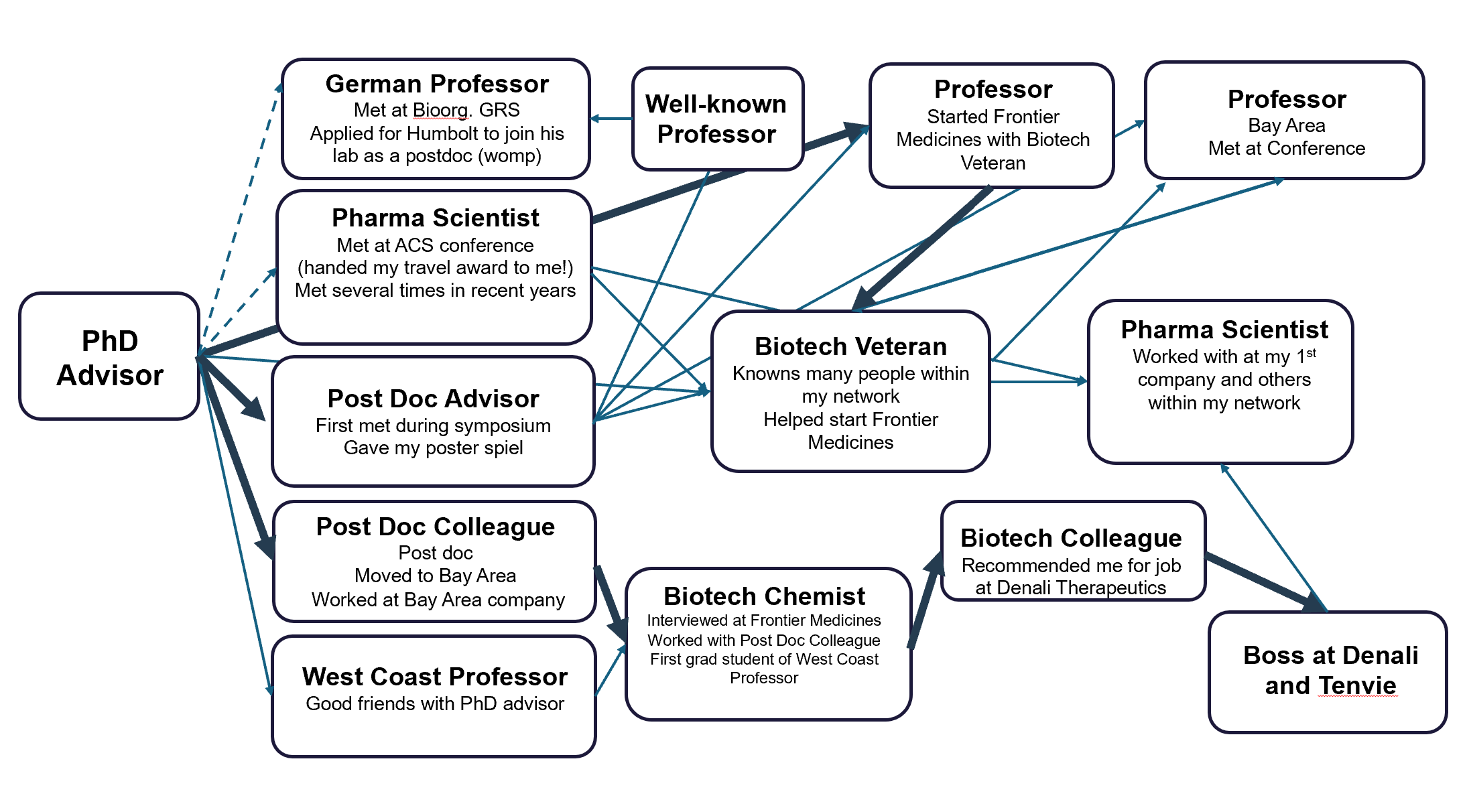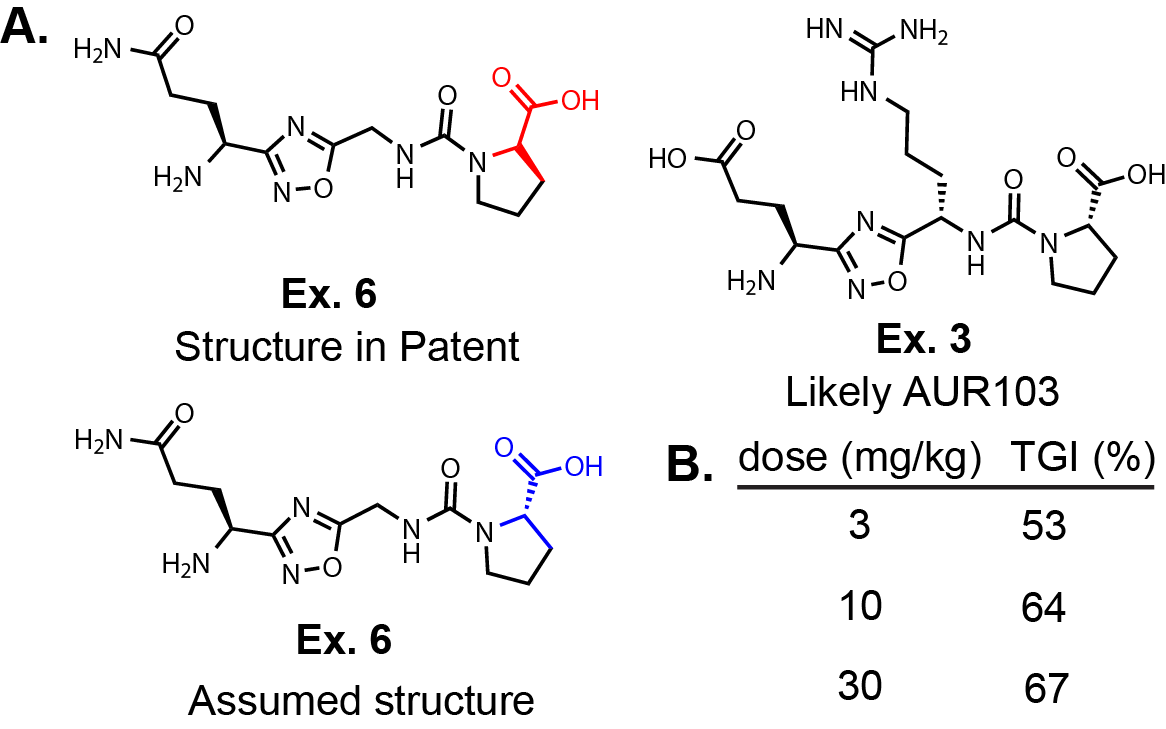Advice from a Biotech Scientist: Networking really is Important
October 17th, 2025 By John Widen
You may, or may not, have noticed that I was laid off last May.
That was one of the major drivers of me creating this blog; to give me an
excuse to read some literature and stay sharp. Plus, I have no chill.
This was my first experience being laid off. I can’t say I enjoyed it.
Unfortunately, this wasn’t a situation where the company I worked for was bought out
and I made a life changing amount of money. Instead, biotech took a downturn
(maybe there still is a downturn) where investments tightened up and
money all of a sudden became an issue. The classic “we need to extend our runway.”
I was provided a generous severance, which I am forever grateful for.
It took me through the summer where the job openings were limited.
But, that meant I needed to start looking for another position!
I have given a couple of career talks to graduate students and post-doctoral researchers as a representative of the biotech industry. My talk focuses predominantly on the age-old question: How do I get a job? I had only been in biotech for 4-5 years when I gave these career talks and had not had the experience of being laid off. I did get a job after my post-doc and subsequently moved to another position 1.5 years later, which then spun out a company after two years. That means I worked for three different companies in five years. That is a lot of DOWN JACKETS, hoodies, and water bottles, but certainly was not my intent. How did I get those jobs? There are a lot of factors that go into getting hired, but I believe a major factor is NETWORKING. And that is what I want to discuss today.
After giving advice on how to get a job to younger scientists, I had to put my words into practice after getting laid off. I decided I would fill up my schedule with lunches, drinks, coffee, anything with people in and outside of my network. Plus, when you have a job, you lose touch with people because work gets busy, life gets busy, and it’s always a challenge to match up schedules. And now that I didn’t have a job, I did have the time. During my networking extravaganza I met many new people and I’m grateful to them for taking the time to meet with me despite never talking to me before. Although many of the meetings didn’t necessarily lead to a job, it is fun to meet new people (at least for me). Plus, there is always the next time. I’m not going to look up the average amount of times people get laid off in their careers (I don’t have the internet right now), but I would hazard a guess that it is more than once.
For these career talks, I put together a slide of all my connections that have led to my jobs (Fig. 1). It truly is a small world. I deidentified the peoples’ names for privacy, but the point still stands. How you get a job is NETWORKING. My PhD boss knew the professor and biotech scientist that helped start Frontier Medicines, which led to my first job. I met several scientists through a post doc that helped train me during my PhD (“Post Doc Colleague”) that actually led to my second job at Denali Therapeutics. He knew someone that interviewed at Frontier Medicines. Then, further down the line he heard that Denali was looking for a Medicinal Chemist. He recommended me to his colleague at Denali and that led to meeting the hiring manager and getting an interview.
I’m not suggesting that you don’t need to have the requisite skills for a job, but these days 100’s to sometimes 1000’s of people apply for job openings in biotech. I have been a part of a variety of job searches, and I can assure you that people spend a very limited amount of time looking at CVs. And now that I’ve been on the other side again applying to positions, I can also assure you that knowing someone at the company will (not so) magically bring your CV straight to the top.
It may not seem fair, but there is the very good reason why this is true. There is an inherent risk in hiring someone and it also costs a lot of resources. The salary and benefits, which in the Bay Area is around $300k per year as a total package, makes hiring the wrong person a substantial risk. In biotech that can be a lot of money. If there is an applicant that someone can bet their own reputation on to recommend you for a position, then that reduces that risk substantially. Why hire an unknown, when there is a sure thing? Networking is like fixing a bet. It gets your foot in the door to show people that you are capable and a great fit for the position.
If you are reading my blog consistently (thank you), you may have noticed
that I have slowed down a bit on blogging. That is because I am now gainfully
employed working at Arc Institute!
I’m still trying to figure out how to become more efficient and still produce useful,
in-depth articles that are informative and fun to read. I have no idea
how other bloggers write 2-3 articles a week while being employed.
I will continue writing blog posts for ChemJam, but maybe at not the
frequency as before. Thanks for being patient while I adjust.
I’ll get back to writing about medicinal chemistry and drug discovery
now so be on the lookout for my next article. I’ll stop there, thanks for reading.
The site does not have a comments section yet! Hopefully, very soon! Until then please drop me a line at jwiden@chemjam.com. If you provide comments on my articles I reserve the right to post them on this website as additional commentary. My goal is to have an open discussion!


